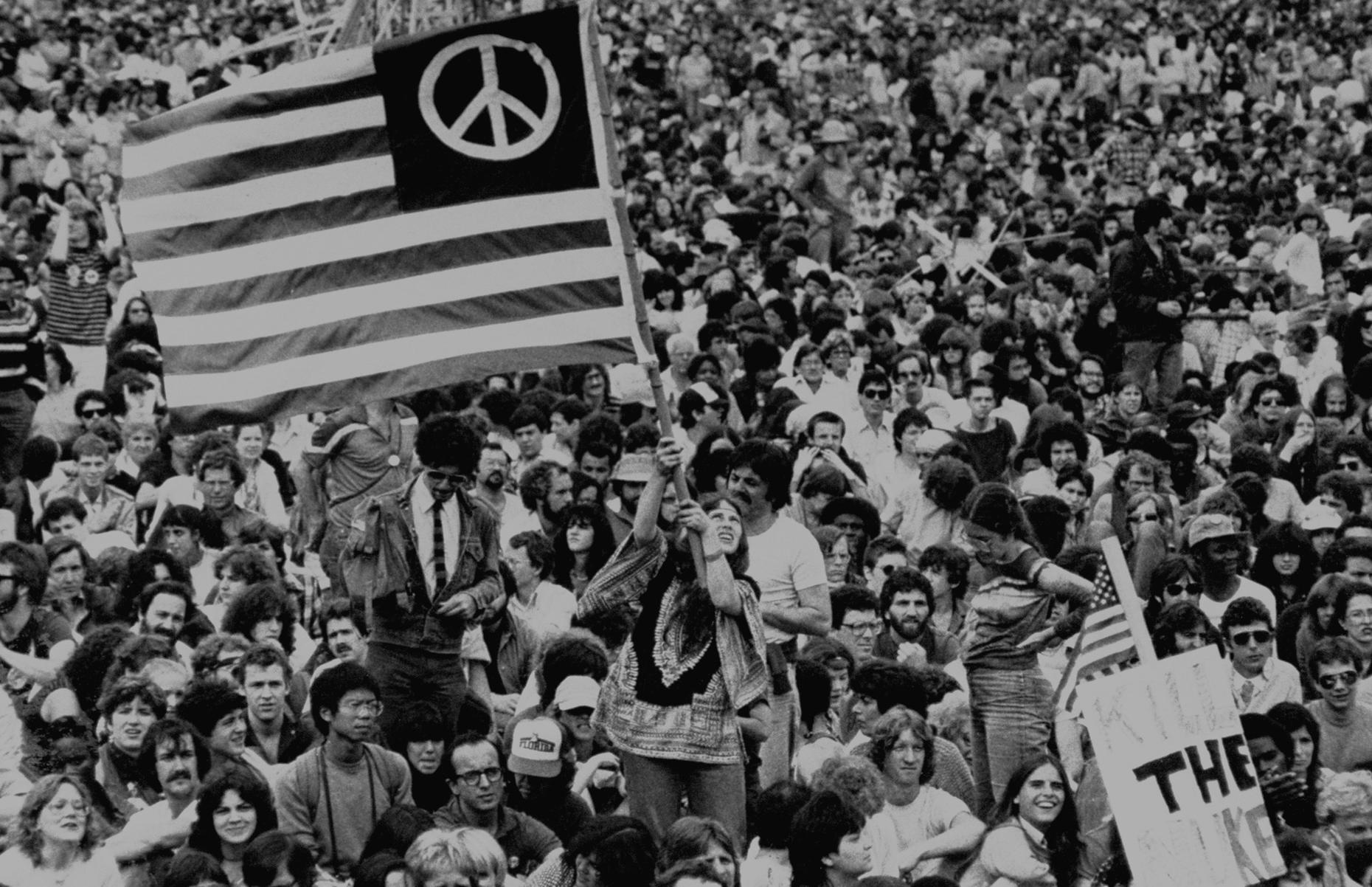Move the Nuclear Weapons Money welcomes the initiative of New York City Council members Daniel Dromm, Helen Rosenthal and Ben Kallos to call on New York City to divest from companies involved in the production of nuclear weapons, and to reaffirm New York City as a Nuclear Weapons Free Zone.
On June 26, the city councillors introduced Resolution 976 calling on the City Council to make such a policy decision, and Initiative 1621 under which the City would establish an advisory committee to examine nuclear disarmament and issues related to recognizing and reaffirming New York city as a nuclear weapons-free zone.
The council declared New York to be a Nuclear-Weapon-Free Zone in 1983 with the adoption of Resolution 364 which prohibits the production, transport, placement or deployment of nuclear weapons within the territorial limits of New York City, and the adoption of Resolution 568 which declared that no ship be permitted to bring nuclear missiles into the harbour of New York.
Since then, the City Council has given further support to nuclear disarmament, most notably in a series of resolutions from 1986 to 1990 calling on the US to negotiate a comprehensive nuclear test ban treaty. The proposal to proscribe city council investments in corporations manufacturing nuclear weapons would be the next logical next step to implement New York’s position as a Nuclear-Weapon Free Zone. It would also be consistent with other divestment actions taken by the city council, in particular its decision in January 2018 to divest the city’s $189bn pension funds from fossil fuel companies within five years. At that time, the pension funds were investing over $5 billion in fossil fuels.
Resolution 976 notes that the NY city pension funds have ‘significant investments in financial institutions and other companies involved in producing key components for and maintaining nuclear weapons through equity holdings, bond holdings, and other assets, according to the annual report issued by the New York City Employees’ Retirement System.’ If the resolution is adopted, these investments will be relinquished.
The success of the fossil fuels divestment campaign in New York gives hope that the nuclear weapons divestment proposal will also succeed.
“New York City’s decision shows that divestment isn’t scary — it’s practical,” said Bill McKibben, Co-founder 350.org, one of the key organisations that campaigned for the NY fossil fuel policy. “Since the beginning of the divestment movement, 350.org has said that it doesn’t make sense for cities to be spending billions of dollars preparing for the impacts of climate change while investing billions more in fossil fuels. That the financial centers of the world are now taking this step is particularly important, because the people who understand how money tends to flow are standing behind the decision to divest.”
McKibben is also a supporter of nuclear weapons divestment and the Move the Nuclear Weapons Money campaign. ‘Just possibly we have enough nuclear weapons,’ says McKibben. ’Just possibly we could spend the money on schools and hospital and food for the hungry.’
Councillor Dromm also makes the connections between fossil fuel divestment and nuclear weapons divestment. In April 2018, Councillor Dromm and 27 co-signers in the New York City Council sent a letter to New York City Comptroller Scott Stringer requesting that pension funds and finances be divested from banks, corporations and financial institutions that profit from the production of nuclear weapons in similar fashion to the City’s divestment from coal and oil investments.
Resolution 976 provides additional rationale for nuclear weapons divestment including the catastrophic humanitarian and environmental consequences that would result from any nuclear detonation in New York City and the support already demonstrated by New York City and its citizens for the complete elimination of nuclear weapons ‘including when one million people demonstrated on the streets and in Central Park for nuclear disarmament and an end to the Cold War arms race on June 12, 1982’.

1 million people participated in the New York nuclear disarmament march on June 12, 1982
The resolution also notes the ‘suffering of and harm caused to the victims of the use of nuclear weapons (hibakusha), as well as of those affected by the testing of nuclear weapons’ and the new Treaty on the Prohibition of Nuclear Weapons (TPNW), which is not supported by the US government but is supported by 122 non-nuclear countries.
The proposals (Resolution 976 and Initiative 1621) have been referred to the Committee on Civil Service and Labor and the Committee on Governmental Operations for further consideration and hopefully adoption.

